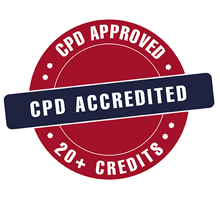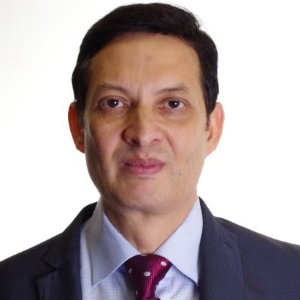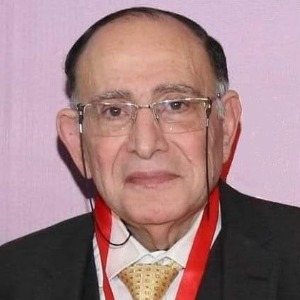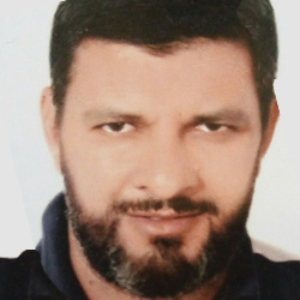Federico Benetti, Benetti Foundation, Argentina
Between 1970 and 1980 there were experiences and series of patients operated on Direct Coronary Surgery without the use of extracorporeal circulation. During the 80 and 90 the Technique was developed. The MIDCAB was the one that promoted the development of Coronary Surgery withou [....] » Read More














Title : Fats of Life, the skinny on statins and beyond !
Ahdy Wadie Helmy, Indiana University School of Medicine, United States
With Cardiovascular disease still the primary killer of adults globally,tackling lipid disorders has proven extremely useful from the statins experience since the early nineties. However,goals are not met regarding the lipid parameters for the vast majority of the world adult pop [....] » Read More
Title : Pharmacological advancement in pulmonary arterial hypertension treatment - Contribution of treprostinil dry-powder formulation
Miroslav Radenkovic, University of Belgrade, Serbia
Pulmonary Arterial Hypertension (PAH) is still a devastating illness with substantial morbidity and death outcomes. Taking into account that the disease advances quickly for many patients, and is commonly associated with severe clinical symptoms, new treatment options are still r [....] » Read More
Title : Personalized and Precision Medicine (PPM) and PPN-guided cardiology practice as a unique model via translational applications and upgraded business modeling to secure human healthcare, wellness and biosafety
Sergey Suchkov, N. D. Zelinskii Institute for Organic Chemistry of the Russian Academy of Sciences, Russian Federation
A new systems approach to diseased states and wellness result in a new branch in the healthcare services, namely, Personalized and Precision Medicine (PPM). The pace of inno-vation in Personalized & Precision Cardiology (PPC) is thus becoming fast including: The success [....] » Read More
Title : Cardiovascular nanomedicine: Stopping strokes, unclogging arteries and restoring heart function
Thomas J Webster, Hebei University of Technology, China
Nanomedicine, or the use of materials with at least one dimension less than 100 nm, has led to improved disease prevention, diagnosis, and treatment. This talk will cover recent advances in the use of nanomaterials to prevent, diagnose, and treat cardiovascular diseases. Specific [....] » Read More
Title : Antibodies with functionality as a new generation of translational tools designed to monitor autoimmune myocarditis at clinical and subclinical stages
Sergey Suchkov, N. D. Zelinskii Institute for Organic Chemistry of the Russian Academy of Sciences, Russian Federation
Catalytic Abs (catAbs) are multivalent Immunoglobulins (Igs) with a capacity to hydrolyze the Antigenic (Ag) substrate. In this sense, proteolytic Abs (Ab-proteases) represent Abs to pro-vide proteolytic effects. Abs against Cardiac Myosin (CM) with proteolytic activity exhibitin [....] » Read More
Title : Perception of cardiovascular risk in women after a rehabilitation program
Maria Teresa Carvallo Marin, Privado, Chile
Evaluacion de la percepcion de riesgo cardiovascular en mujeres.Carvallo M.T.et al.Perception of cardiovascular risk in women after a rehabilitation program Introduction: After suffering a serious car- diovascular event (CV), cardiac rehabilitation is a process in whi [....] » Read More
Title : Determination of significant change in right ventricular strain among patients with rheumatic mitral stenosis after percutaneous transvenous mitral commissurotomy
Maria Antonette Bernal Gelindon, Philippine Heart Center, Philippines
INTRODUCTION: Application of strain echocardiography in Rheumatic Mitral Stenosis (MS) allows new insight in evaluation of cardiac function. The aim of this paper is to describe the significant change in right ventricular (RV) strain among patients with Rheumatic MS after Percuta [....] » Read More
Title : Deciphering the cardioprotective mechanism of a natural compound in post-infarct mice: an integrative approach combining network pharmacology, in vitro, and in vivo validation
Krishna Priya Jha, Department of Pharmacology & Toxicology, NIPER, India
Herbs have long served as foundational sources of medicinal agents and continue to play a pivotal role in both traditional and modern pharmaceutical practices. Among these, several naturally derived compounds exhibit promising therapeutic potential against cardiovascular diseases [....] » Read More
Title : Functional and psychological impact of cardiac rehabilitation in patients with implantable cardiac devices: a longitudinal study
Carolina Castro Gomez, Fundacion Valle del Lili , Colombia
Background: Cardiac rehabilitation (CR) programs are established interventions for improving physical and psychological outcomes in patients with cardiovascular diseases. However, data on their effects in patients with cardiac implantable electronic devices (CIEDs), particularly [....] » Read More
Title : Should internet speed be a marker of social vulnerability? Insights from patients with ATTR cardiac amyloidosis
Rona Yu, Walter Reed National Military Medical Center, United States
Background: Socioeconomic disparities influence access to medical care and cardiovascular disease outcomes. While there is an increasing interest in internet-based tools to improve patient care, access to high-speed internet and its association with outcomes is poorly understood. [....] » Read More
Title : Mixed connective tissue disease revealed by MINOCA syndrome
Silini Enfal, Babeloued hospital, Algeria
Introduction: Myocardial infarction with non-obstructive coronary arteries (MINOCA) is an increasingly recognized clinical entity, especially with the frequent use of angiography in acute coronary syndromes. Diagnosing MINOCA requires a thorough evaluation of multiple potent [....] » Read More
Title : Shock index as clinical independent predictor of in-hospital mortality in acute coronary syndrome patients: A 5-year retrospective study
Alfie F Calingacion, Vicente Sotto Memorial Medical Center, Philippines
Introduction/Objective: In the Philippines, acute coronary syndrome (ACS) is a leading cause of mortality. Risk assessment is crucial for estimating prognosis and indicating the need for a more aggressive approach. Shock index (SI), ratio of heart rate and systolic blood pressure [....] » Read More